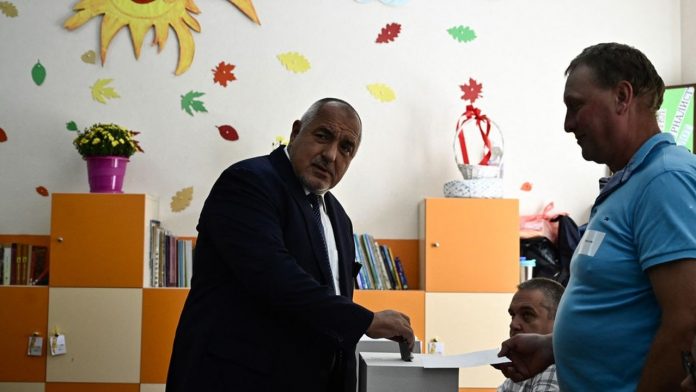Posted Oct 3, 2022, 3:08 PMUpdated Oct 3, 2022, 3:33 PM
All Bulgaria’s experts predicted it: the political landscape emerging from the ballot box after Sunday’s legislative elections is totally shattered. The fourth ballot in eighteen months has been marked by an extremely low turnout and is unlikely to produce a majority coalition to support a stable government.
The conservative GERB party of Boïko Borissov, in power from 2009 to 2021, clearly came out on top with 25% of the vote. “We continue the change”, the centrist and pro-European formation of outgoing Prime Minister Kiril Petkov, in power only a few months until last July, is second with 20% of the vote, in sharp decline compared to the previous elections.
alliance not possible
An alliance between the two parties that came out on top seems impossible at this stage, as Kiril Petkov has based his success on his opposition to Boïko Borissov, whom he accuses of having set up a system of large-scale corruption. Petrov has in any case ruled out any deal with Borissov so far. “We promised not to ally with GERB and we will keep our word,” he said on Sunday evening.
Coalitions with other parties seem complicated, too. The party of the Turkish minority in Bulgaria comes third with around 13% of the vote. It is followed by Renaissance, a pro-Russian, anti-NATO and anti-European far-right party, and the Bulgarian Socialist Party, heir to the Soviet-era Communist Party.
Rise of anti-system parties
“The rise of anti-system parties reduces the possibilities of a coalition,” explained Lukas Macek of the Jacques Delors Institute on the eve of the election. Borissov arouses a strong rejection of the other parties, but the latter are unable to come to an agreement”. The pro-Russian or anti-Russian positioning of certain formations complicates the game. “The war in Ukraine has reinforced the red lines for many political formations, which makes agreements even more difficult”, explains Mariyan Sabev, of the Center for the Study of Democracy, an institute based in Sofia.
The Bulgarian Constitution grants a mandate to Boïko Borissov, who came first, to form a government. If he fails, it will be Kiril Petkov’s turn to try to build a coalition. In case of definitive failure, new elections will be called. This political instability comes at the worst time for Bulgaria, the poorest country in the European Union where inflation is close to 20%.
How to react effectively to changes?
Economic uncertainties, political tensions, global warming, changing businesses and industries… The world is changing. How to decipher weak signals, anticipate and best adapt? The “Echos” editorial staff, with its 200 specialized journalists, provides you with strategic thinking tools every day to understand our environment and deal with changes. Through our analyses, surveys, chronicles and editorials, we support our subscribers to help them make the best decisions.













